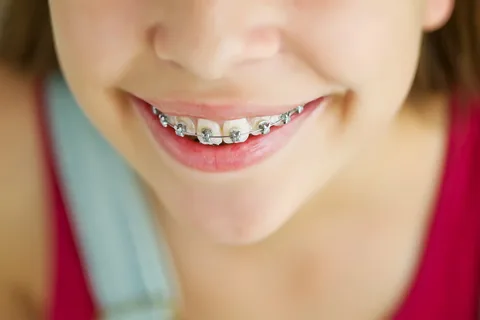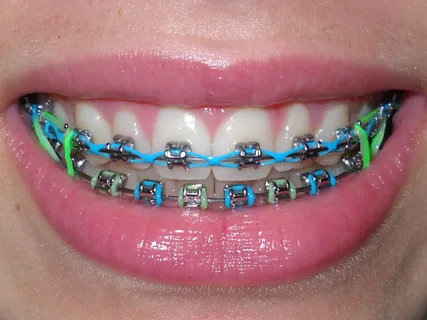When it comes to achieving a straighter smile and improving your bite, dental braces are a popular solution. Orthodontic care can help align your teeth, enhance your facial profile, and boost your confidence. With various options available in the market, choosing the ideal dental braces mascot for your specific needs can be overwhelming. In this blog post, we will explore different types of dental braces, their benefits, and how to select the right one for you.
Understanding the Importance of Orthodontic Care
Orthodontic care goes beyond merely enhancing aesthetic appeal; it is crucial for rectifying misaligned teeth and an improper bite, which, if left untreated, can lead to many oral health issues. Misalignments, known as malocclusions, can cause difficulties in chewing and speaking and may contribute to the buildup of plaque and tartar due to the challenge of properly of cleaning crowded or overlapping teeth. This can increase the risk of tooth decay and gum disease.
Furthermore, an incorrect bite can exert undue stress on the jaw joint (TMJ), potentially leading to TMJ disorders and chronic pain. By investing in orthodontic treatment, such as dental braces, individuals work towards achieving a more harmonious smile and take a significant step towards preventing future dental problems. This proactive approach to oral health can improve quality of life, making orthodontic care an invaluable investment for aesthetic satisfaction and long-term dental well-being.
 Traditional Metal Braces: A Time-Tested Solution
Traditional Metal Braces: A Time-Tested Solution
Traditional metal braces are the quintessential solution for rectifying a wide range of orthodontic issues. Comprising sturdy metal brackets affixed to each tooth and linked via wires, these braces have a longstanding reputation for effectiveness. Their durability makes them suitable for tackling even the most complex misalignment and bite problems. While metallic visibility is often cited as a drawback, advancements in orthodontic technology have led to smaller, more streamlined brackets that reduce this concern.
Furthermore, the opportunity for personalization with colored bands has made them an appealing option, especially amongst younger patients. Metal braces are renowned for their robustness and for offering reliable, time-efficient treatment outcomes, making them a pivotal component of traditional orthodontic care. Their unmatched ability to correct severe orthodontic conditions ensures they remain a valuable and widely accessible option for individuals of all ages seeking to improve their dental health and achieve a harmonious smile.
Ceramic Braces: Aesthetic and Effective
Ceramic braces are an aesthetically appealing option for those seeking to correct dental misalignments without the pronounced visibility of metal braces. Constructed from composite materials that either mimic the natural shade of the teeth or are completely translucent, these braces are designed to blend seamlessly with your smile. This feature makes them particularly favored by adults and older teenagers who are conscious about the appearance of braces during social or professional interactions.
While the functionality and efficiency of ceramic braces are on par with their metal counterparts, they do require a more meticulous approach to maintenance, as the brackets are more prone to staining from foods, drinks, and smoking. Additionally, they may involve a slightly higher investment compared to traditional metal braces, attributed to the advanced materials and aesthetic benefits they offer.
Despite these considerations, ceramic braces represent a middle ground between the undeniable effectiveness of metal braces and the discreet nature of clear aligners, making them an attractive choice for those prioritizing aesthetics and orthodontic correction. Their durability and less intrusive look facilitate an effective treatment process and ensure that individuals can maintain confidence in their appearance throughout their orthodontic journey.
Lingual Braces: Invisible Orthodontic Correction
Lingual braces offer a unique and inconspicuous method for straightening teeth, tailored for those who prefer to keep their orthodontic treatment hidden from view. Affixed to the inner surfaces of the teeth, these braces are virtually undetectable to others, presenting an ideal solution for adults and professionals keen on maintaining an unaltered appearance during their orthodontic journey. Unlike traditional braces, lingual braces require specialized expertise for application and adjustment, underscoring the importance of selecting an orthodontist experienced with this particular treatment option.
Due to their placement, individuals may experience an initial adjustment period, particularly concerning speech and tongue comfort. However, most adapt quickly, finding the discreet nature of the treatment greatly outweighs any temporary inconvenience. While lingual braces are effective for correcting many dental misalignments and bite issues, they may not suit all cases. Certain severe orthodontic conditions could necessitate more visible treatment options for optimal results.
It is also worth noting that the cost of lingual braces can be higher than that of other dental braces, reflecting the customization and specialized care required. Despite this, for those prioritizing discretion above all, lingual braces represent a compelling choice, offering efficient orthodontic correction without compromising the aesthetics of one’s smile during the treatment process.
Clear Aligners: A Modern Approach to Straightening Teeth
Clear aligners represent the forefront of orthodontic innovation, offering an alternative that caters to the lifestyle and aesthetic preferences of many today. These aligners, epitomized by brands such as Envisaging, utilize a series of custom-fitted, transparent trays that incrementally adjust the position of teeth. Unlike traditional options, they afford the wearer the luxury of removal for eating, drinking, and oral hygiene routines, thereby reducing the risk of plaque accumulation and promoting better dental health during treatment.
The appeal of clear aligners extends beyond their practical benefits; their virtually invisible nature ensures minimal impact on the wearer’s appearance, making them a preferred choice among adults and teenagers alike who may be self-conscious about the visual implications of conventional braces. Suitable for addressing minor to moderate alignment and spacing issues, these aligners offer a level of discretion and convenience unmatched by other orthodontic solutions.
Despite their advantages, clear aligners demand a disciplined approach from the user. For optimal results, it is recommended that they are worn for most of the day, typically 20-22 hours, and only removed for meals and oral care. The journey with clear aligners is a collaborative effort between the patient and the orthodontist, requiring adherence to prescribed wear schedules and regular check-ups to monitor progress and adjust treatment as necessary.
How to Choose the Right Type of dental braces mascot for you?
Selecting the ideal type of dental braces mascot hinges on a detailed understanding of your orthodontic requirements, lifestyle preferences, and budgetary constraints. Initially, a thorough consultation with an experienced orthodontist is indispensable, as they can assess the severity of your dental misalignments and recommend the most effective treatment options. Consider your daily routine and any social or professional settings you frequently navigate. For individuals highly concerned about the visibility of braces, options such as ceramic braces, lingual braces, or clear aligners might be more appealing.
Conversely, those engaged in active lifestyles or contact sports may find the robustness of metal braces more suited to their needs. Budgetary considerations also play a critical role; traditional metal braces often present a more cost-effective solution, whereas lingual braces and clear aligners’ bespoke nature and aesthetic advantages can reflect a higher investment. It’s vital to weigh these factors against the potential long-term benefits of each treatment option, ensuring you make a well-informed decision that aligns with both your personal and orthodontic goals.
What to Expect During and After Orthodontic Treatment?
Embarking on orthodontic treatment heralds a series of regular check-ups and adjustments with your orthodontist. Initially, you might feel discomfort or pressure as your teeth begin moving towards their new positions. It’s normal to experience slight soreness following these adjustments, but this usually subsides within a few days. Proper oral hygiene becomes even more crucial during this period, as braces can trap food particles and make your teeth more susceptible to plaque buildup and potential decay.
After removing your braces, wearing retainers is critical to ensure that your teeth do not return to their original positions. The type and duration of retainer wear will vary, but it is essential to maintain the alignment and spacing achieved through your treatment. Regular follow-up visits may also be necessary to monitor the stability of your teeth’s new alignment. Adjusting to life with and after braces will take time, but the results—a healthier bite and a more confident smile—are well worth the journey.
The Role of Dental Hygiene in Orthodontic Success in points
Maintain Regular Cleaning:
With braces, brushing your teeth after every meal is essential to prevent food particles from getting trapped, leading to plaque buildup and potential tooth decay.
Use Specialized Tools:
Invest in orthodontic cleaning tools such as interdental brushes and water flosses designed to navigate braces and clean hard-to-reach areas effectively.
Embrace Flossing:
Daily Flossing becomes even more critical with braces. Use floss traders or orthodontic floss to get beneath wires and between brackets where plaque can accumulate.
Limit Sugary and Sticky Foods:
Consuming foods high in sugar or sticky can increase the risk of plaque buildup and damage to orthodontic appliances. Opt for healthier snacks to support dental health.
Attend Regular Dental Check-ups:
Besides visiting your orthodontist, continue seeing your dentist for professional cleanings and check-ups at least twice a year to address any signs of gum disease or tooth decay early.
Follow Orthodontist’s Advice:
Adhere strictly to any care instructions given by your orthodontist, including wearing additional appliances like rubber bands as directed, to ensure the treatment progresses as planned.
Protect Your Braces:
If you play sports, wear a mouth guard to protect your braces and teeth from potential damage. This will help maintain your orthodontic progress and oral hygiene.
Conclusion
Selecting the appropriate dental braces mascot is a critical decision, best made with guidance from an experienced orthodontist. Whether your preference leans towards the durability and efficiency of traditional metal braces, the aesthetic discretion of ceramic braces, the invisibility of lingual braces, or the innovative approach of clear aligners, your journey towards an enhanced smile and dental health is highly personal and unique. It’s essential to weigh the pros and cons of each option, taking into account the complexity of your dental needs, lifestyle considerations, and financial implications. Engaging in open dialogue with your orthodontic specialist will ensure you are well-informed of the most suitable treatment pathway for you.
FAQS
Q: How long do I need to wear braces?
A: The duration varies depending on individual cases, typically ranging from 18 months to 3 years. Your orthodontist will provide an estimated timeline based on your specific needs.
Q: Do braces hurt?
A: Some discomfort is normal when braces are first fitted and after adjustments. However, this usually eases within a few days. Pain relief can be managed with over-the-counter painkillers, if necessary.
Q: Can I still play sports with dental braces mascot?
A: Yes, but it’s advised to wear a mouth guard to protect your dental braces mascot and mouth from potential injury.
Q: Are there foods I should avoid?
A: Yes, hard, sticky, or chewy foods can damage your braces. It’s best to avoid items like caramel, nuts, and popcorn.
Q: How often will I need check-ups?
A: Typically, you’ll visit your orthodontist every 4-8 weeks for adjustments and monitoring of your progress.
| Other Good Articles to Read |
| Skank Blogs |
| Unreal Blogs |
| Tba Blogs |
| All City Forums |
| Dany Blogs |
| Refuge Blogs |
| The Music Blogs |
| Key Forums |
| The Big Blog Theory |
| Joe Blogs |
| Blogs 4 Me |
| Blogs Emon |
| Related Business Listings |
| Contact Directory |
| Local Business Profiles |

